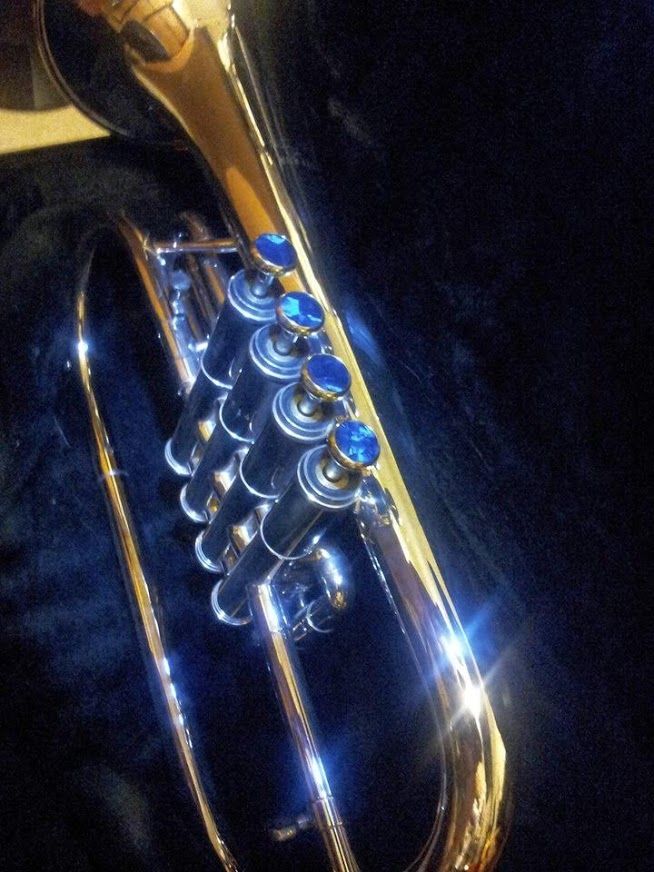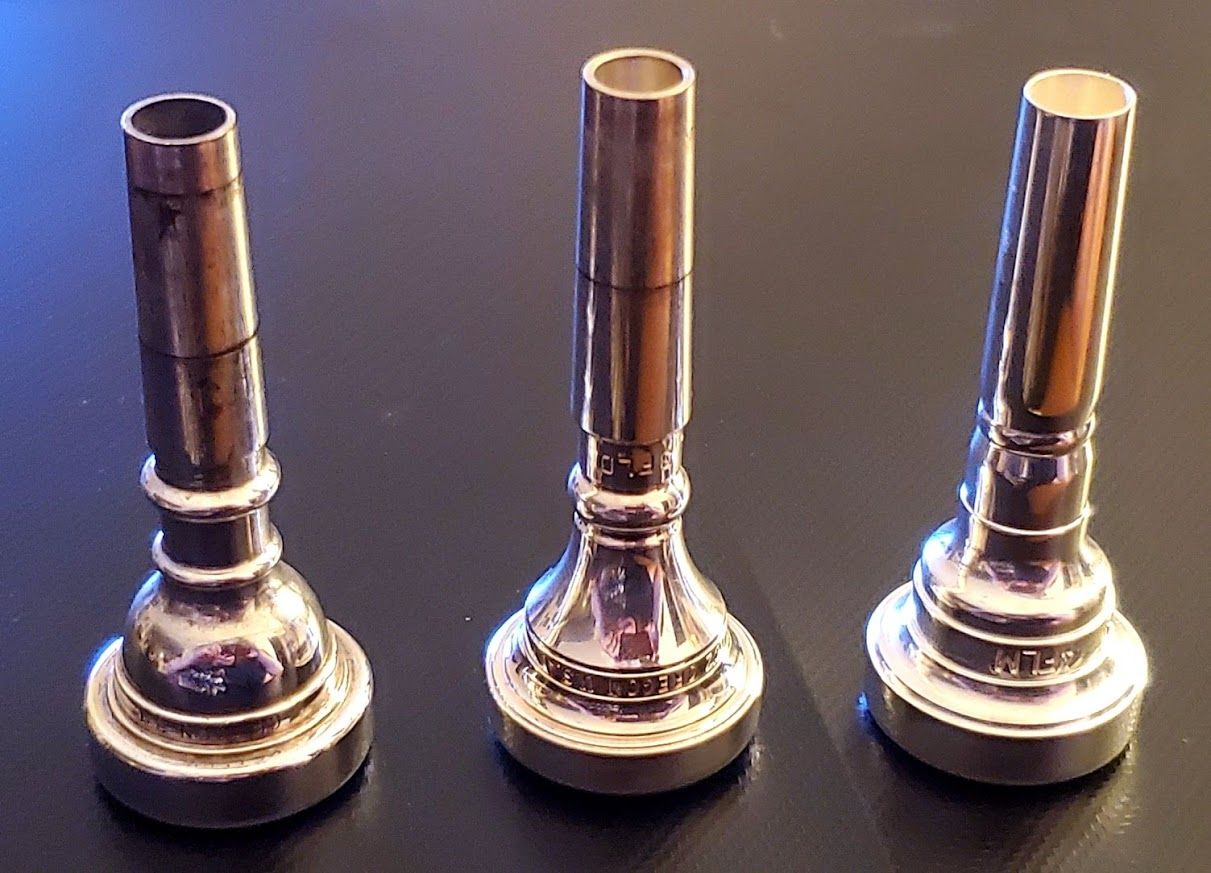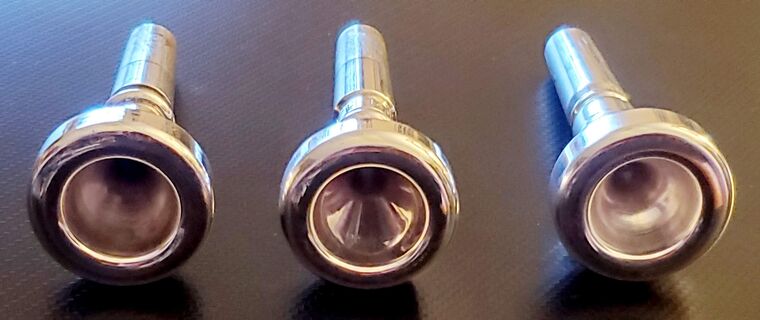@rowuk I didn't say actual "trumpeters" were Bach snobs (although there are some, their opinions are not what counts for very much in the paradigm I'm referring to) - I said there are directors and professors that are. These are people that students have to deal with that are in an authoritative position where they can freely exercise their bias, unchallenged, and students are powerless to argue with them, especially if it's not overt. But I personally know of a number of students over the years who were effectively forced to sell their horn because they were either directly or indirectly informed that they should buy a Bach if they wanted to be competitive - or even just treated fairly at annual collegiate ensemble auditions. On the other hand, I've also never known a student who was ever directly or indirectly pressured to buy any other brand or model in quite the same way.
Bach milked their holy blessing from the Chicago Symphony for decades, even after quality and consistency had more than a few suspect production runs. This bias was and is largely a US phenomenon that has been gradually and thankfully going away - as you say - especially in the professional orchestras, largely as a result of the last 30 years of Yamaha's pro and student market penetration, as you mentioned, and the fact that most of the worldwide trumpet player community is online now and thankfully doesn't, overall, hold with these old-fashioned brand biases anymore. But such purely-professional cultures like pro orchestras are always quicker to change than any level of "education" culture - any public school teacher can attest to their own half of that, LOL
But my point is that there are still a few tenured dinosaurs around the country that can go so far as to literally block a student from finishing a degree, indefinitely, should they happen to get crossed up with them, and playing a horn they don't like, however petty it seems, can end up being just one more strike against them.
Then again, if it ever gets to a point where everybody is being told to buy a Yamaha "just to be on the safe side" with orchestral auditions, that's really not a better situation, either. But perhaps it's inevitable. Somebody is going to be recognized as the best player in the best trumpet section in the best orchestra and whatever they play starts becoming a de-facto standard. This is why horn makers curry endorsements from pros, and always will. Everybody who is NOT that "pro", and is unsure, can't really tell a big difference or doesn't have anywhere local to try horns, is more likely to just order what that "pro" plays, OR buy whatever their teacher says to buy, and all he knows is what he himself plays based on what everybody used to say 30 years ago when he was in college, LOL And when you go audition, you either have what the judges "know" to look for - based on that same kind of thing - or you don't. And since everybody auditioning is often more than "good enough", it often comes down to purely subjective hair-splitting.
Here's the funny thing - I'm also a rep for a relatively new brand of high-quality, low-cost school instruments. Our main "beginner" horn is a Yamaha 2335 clone, and our main "intermediate" trumpet is a Bach 37 clone.
All we make are various different grades of "student/intermediate models" - mostly for schools, right? Why did we pick these two models? Again, unspoken de-facto standards. And a lot of that is driven by brand familiarity/loyalty/snobbery or whatever you want to call the general ignorance and fear people have of "other" brands - it amounts to the same thing on the marketing level.
But we're very successful because the simple FACT is that it's not just B&S or Schilke who can copy "the Bach core sound" - or that of just about any other famous, 'preferred' wind instrument model. So maybe that says something about changing attitudes (when the price is right). We found the easiest way to get the Bach sound at a lower cost is to just copy the whole horn, and use higher technology and more automated processes to ensure better consistency. And in fact, our CEO found out that anybody COULD do it - with a relatively high degree of quality - if they just WANTED to - and guess what? Even Bach has incorporated SOME of these things (but not our lifetime warranty!). Bach doesn't make anywhere near as much "in-house" on a Bach Stradivarius as they used to, and every other "Made in USA" brand/model is using the same seven factories in China for everything they can get away with, too - which is quite a bit more than most people are aware of. But whether other brands want to market a "Bach-like" model or an outright clone at all - and what their price point is - depends on their own brand image and business model. Most brands are not strictly in our "school-quality" market niche, and they have a lot more middle-men involved in their supply chains and management.
Since you mentioned Selmer - you realize all Bach has to do is put their parent company's roll-stamp on the bell, and suddenly it's a "Selmer", LOL! Same with Conn. They're all the same company. They're just different lines of manufacturing, i.e., just different models now, not really different "brands" anymore. But if they suddenly started stamping "Conn-Selmer-Bach" on all the Strads, Vintage One's and Claude Gordon models, mark my words, it would just be the "Bach line" models that people would lose their minds about and be suspicious of "quality" going to hell (again), LOL And if Conn-Selmer-Bach really admitted what percentage of their parts that are actually made in China, people's heads would explode.



